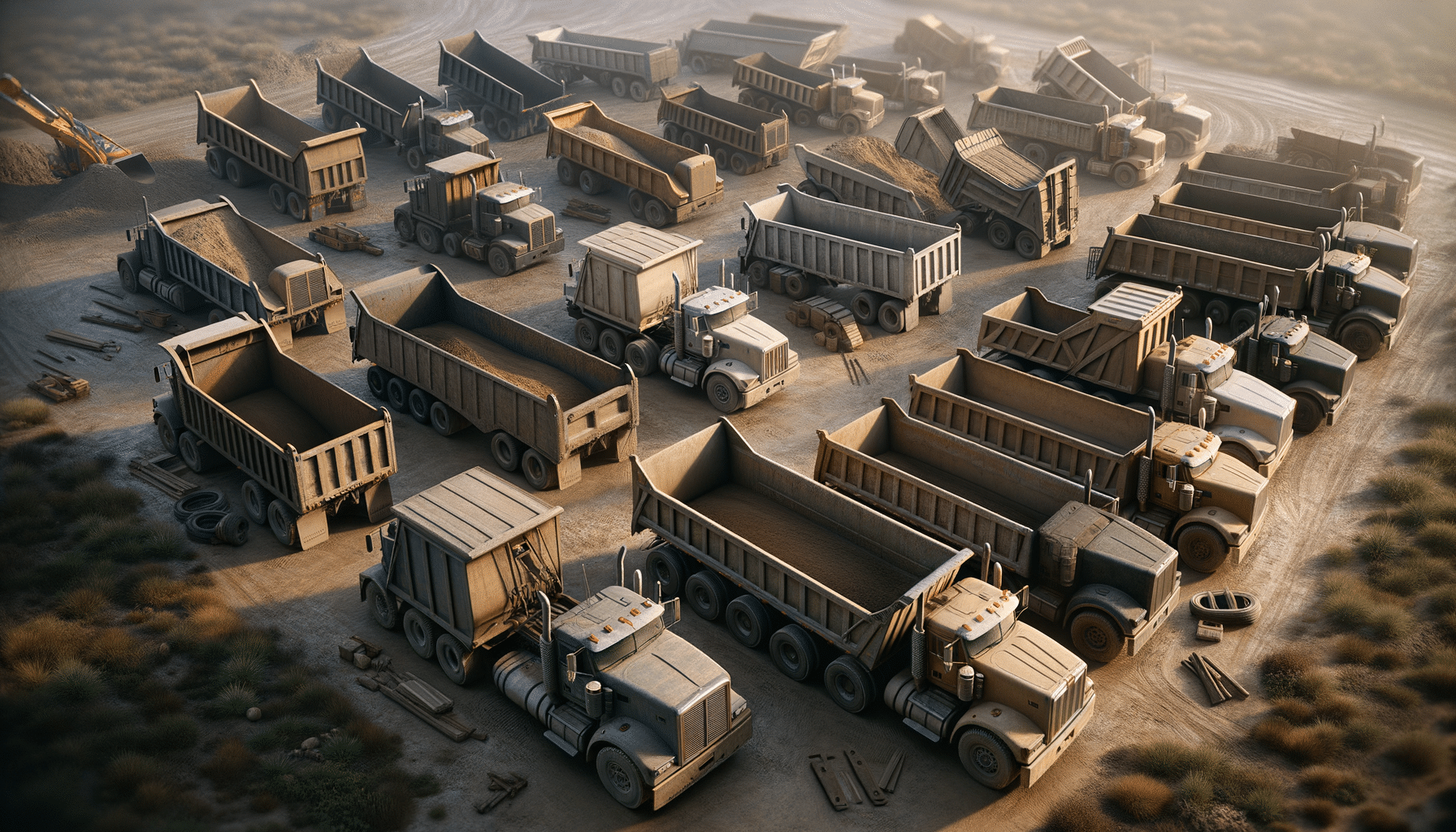
Exploring the Versatility and Utility of Dumpster Trailers
Introduction to Dumpster Trailers
Dumpster trailers are a versatile and essential tool in various industries, providing a flexible and efficient solution for tasks ranging from construction to waste management. Their ability to transport and dump materials makes them invaluable for projects of all sizes. Understanding the different types of dumpster trailers and their specific applications can guide users in selecting the right equipment for their needs, ensuring both efficiency and safety.
Different Dump Trailer Types and Their Applications
Dump trailers come in various types, each designed to meet specific needs. The most common types include:
- Standard Dump Trailers: These are the most common and are used for general purposes such as hauling debris, soil, and construction materials. Their versatility makes them suitable for a wide range of applications.
- Side Dump Trailers: Ideal for unloading materials quickly, side dump trailers can tip their load to the side. This feature is particularly useful in areas with limited space, allowing for quick and efficient dumping without the need for additional maneuvering.
- End Dump Trailers: Known for their high capacity, end dump trailers are perfect for transporting large loads over long distances. They are commonly used in construction and mining industries.
- Roll-Off Dump Trailers: These trailers are equipped with a rolling mechanism that allows the container to be easily loaded and unloaded. They are particularly useful in waste management and recycling operations.
Each type of trailer serves a distinct purpose, and choosing the right one depends on the specific requirements of your project. Understanding these types helps in optimizing operations and enhancing productivity.
Key Features to Consider When Choosing Dump Trailers
When selecting a dump trailer, several key features should be considered to ensure it meets the demands of your specific tasks. These include:
- Load Capacity: Consider the maximum weight the trailer can handle. This is crucial for ensuring safety and efficiency, particularly in construction and heavy-duty applications.
- Material and Build Quality: Trailers made from high-quality materials such as steel or aluminum offer better durability and longevity, especially in harsh working conditions.
- Hydraulic System: A reliable hydraulic system is essential for smooth and efficient operation. Ensure the system is robust enough to handle the trailer’s load capacity.
- Maneuverability: Consider the trailer’s size and turning radius, especially if it will be used in confined spaces. Compact trailers are easier to maneuver in tight areas.
- Safety Features: Look for trailers equipped with safety features such as brakes, lights, and reflective markers to ensure safe operation under various conditions.
By focusing on these features, you can choose a trailer that not only meets your current needs but also accommodates future requirements, thus maximizing your investment.
Maintenance Tips for Dump Trailers
Regular maintenance of dump trailers is essential to ensure their longevity and reliable performance. Here are some maintenance tips to keep your trailer in top condition:
- Regular Inspection: Conduct periodic checks for any signs of wear and tear, including the hydraulic system, tires, and frame. Early detection of issues can prevent costly repairs.
- Lubrication: Ensure all moving parts, including hinges and hydraulic components, are well-lubricated to prevent friction and wear.
- Cleaning: Regularly clean the trailer to prevent rust and corrosion, especially if it’s exposed to harsh weather or corrosive materials.
- Tire Maintenance: Check tire pressure and tread regularly to ensure safe and efficient transportation.
Implementing a routine maintenance schedule can significantly reduce downtime and extend the lifespan of your dump trailer, ensuring it remains a valuable asset to your operations.
Safety Guidelines for Using Dump Trailers
Safety is paramount when operating dump trailers. Following these guidelines can help prevent accidents and injuries:
- Proper Loading: Always ensure the load is evenly distributed to prevent tipping. Avoid overloading the trailer beyond its specified capacity.
- Secure Loads: Use appropriate restraints to secure the load, preventing it from shifting during transport, which could lead to instability or accidents.
- Operate on Level Ground: Whenever possible, operate the trailer on level ground to prevent tipping when unloading.
- Wear Protective Gear: Always wear appropriate safety gear, such as helmets and gloves, when operating or working near dump trailers.
By adhering to these safety measures, operators can ensure a safer working environment and prevent accidents, thereby maintaining productivity and protecting both personnel and equipment.
Conclusion: Maximizing the Utility of Dump Trailers
Dump trailers are an indispensable tool across various industries, offering unparalleled flexibility and efficiency. By understanding the different types and their applications, selecting the right features, and adhering to maintenance and safety guidelines, businesses can significantly enhance their operational capabilities. Investing in the right dump trailer not only ensures immediate project success but also contributes to long-term productivity and safety.


